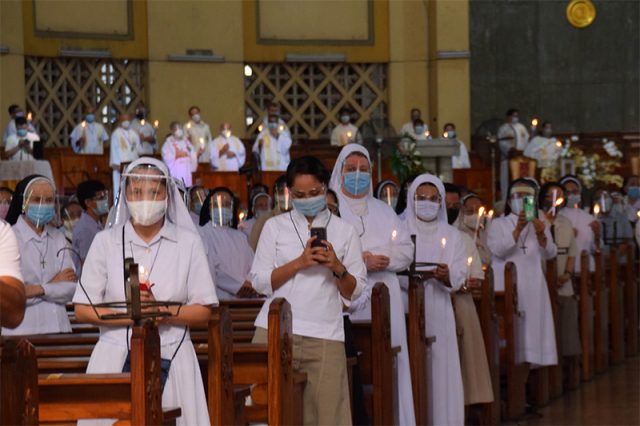
The country’s major superiors said that continued red-tagging of some among their ranks will not in any way distract them from pursuing their mission and work for justice and peace.
The Conference of Major Superiors in the Philippines (CMSP), in a statement issued Friday, asserted that “to serve the people of God is never wrong”.
“Irresponsible labels and name-calling will not cow us,” part of the statement read. “To be in solidarity with the struggles, dreams and hopes of our people is demanded by our life of consecration to God and his people.”
The statement was a product of their July 11 to 14 online convention, where they reflected on the theme, “The CMSP’s Prophetic Challenges Today”.
More than 150 delegates coming from 116 women and 26 men institutes attended the event, together with some representatives from the CMSP Commission on Justice, Peace and Integrity of Creation, and its mission partners.
The organization, formerly known as the Association of Major Religious Superiors in the Philippines or AMRSP, urged its members to keep working with justice and peace advocates, and environment and human rights defenders.
“Let us go to the margins and peripheries, the new frontiers and spheres of our missionary presence – socio- economic, political, religious and cultural, technological and minister to the vulnerable and the deprived,” they said.
“We commit ourselves in working to dismantle unjust structures in society, and in their place, help build new ones in a spirit of reconciliation, justice and peace, as our Christian faith demands,” they added.
The major superiors also vowed to “stand for the truth” amid “systematic disinformation, misinformation, (and) historical distortions” in the country.
“As Church, we are challenged by our present time and context to stand for truth,” according to them. “The Church will not and cannot be neutral on moral and ethical issues and concerns.”
They also vowed to continue working for “ecological integrity, human rights and human dignity, citizen engagement and good governance, interfaith dialogue, and safeguarding the minors and vulnerable in our various pastoral ministries”.






